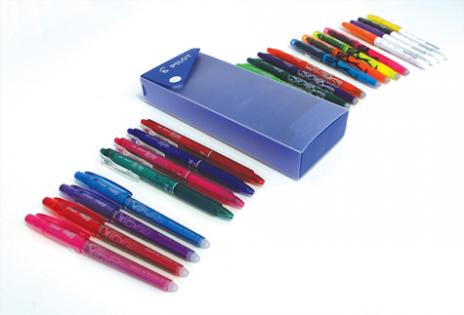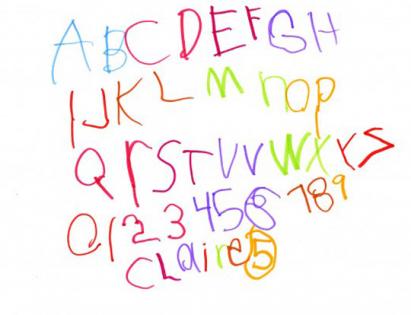When it comes to learning how to write, many children are scared to make a mistake and worry their handwriting will be 'wrong', messy or illegible.
"Many children are used to pressing 'delete' or 'autocorrect' on a computer keyboard and so when they start learning how to write with pen and paper, they lack the confidence to make a mistake," says Jocelyn Brewer, child psychologist and educator.
Jocelyn says that spending time sitting with your child and practising handwriting skills can be extremely beneficial to building confidence and that learning to write involves a few key stages:
- scribbling
- tracing
- copying, and
- replication using memory, ie. being able to recall what the letter looks like and replicate it from a mental image.
"Getting used to holding a pen or pencil and taking the time to learn in a relaxed and supportive home environment can be extremely beneficial," she says.
Jocelyn's top tips for building handwriting confidence:
1. Encourage practising holding and gripping the pen with a pincer grip - not too tight, not too loose.
- This gives control over the pen whilst your child is forming the letters and helps in the acquisition of fine motor skills - an important part of brain development.
2. Break it down.
- Learning the entire alphabet can seem daunting for many children.
- Focus on one letter a day and when your child has had enough, leave it be to avoid frustration.
- Always finish on a high note!
3. Have fun with handwriting.
- Try colours for different letters or decorate the page border.
- This can engage children and build confidence in their work presentation.
4. Keep it simple.
- When moving onto words, choose simple three-letter words at first.
- When your child is feeling confident, then move on to longer words.
- It's worth spending time on repetition and not rushing the process.
5. Choose your handwriting tools well.
- Choose a pen that little hands can easily hold, not too big or bulky, to encourage control.
- One simple tool that can help build your child's handwriting confidence and skills is a product that allows them to correct mistakes.
"Making mistakes are actually great learning experiences and when coupled with a zero pressure environment and something like a brightly coloured pen that is erasable, children can gain confidence to learn new skills," says Jocelyn.
Frixion, makers of erasable pens, would like to know how much you're into handwriting.
Do you just do everything on the keyboard now, or do you still do some handwriting? Do you write lists? Letters? Has your writing deteriorated? Frixion invites readers to take part in this quick survey about handwriting habits.
Everyone who completes the survey by 30 April has the chance to win one of 20 Frixion erasable pen sets (pictured below), valued at $50 each.



















__small.png)










